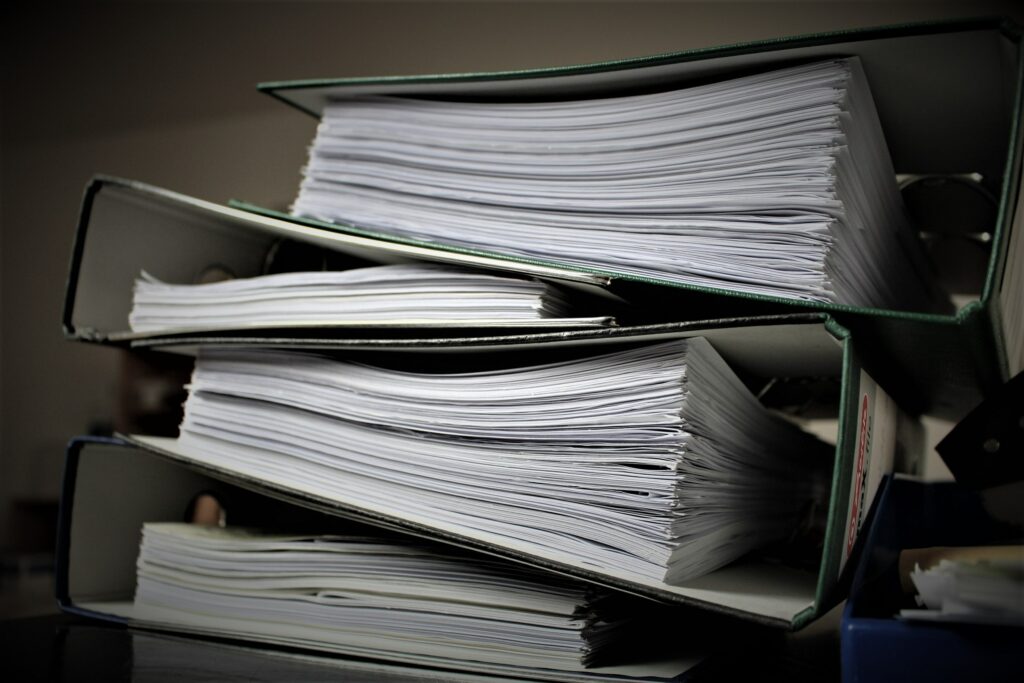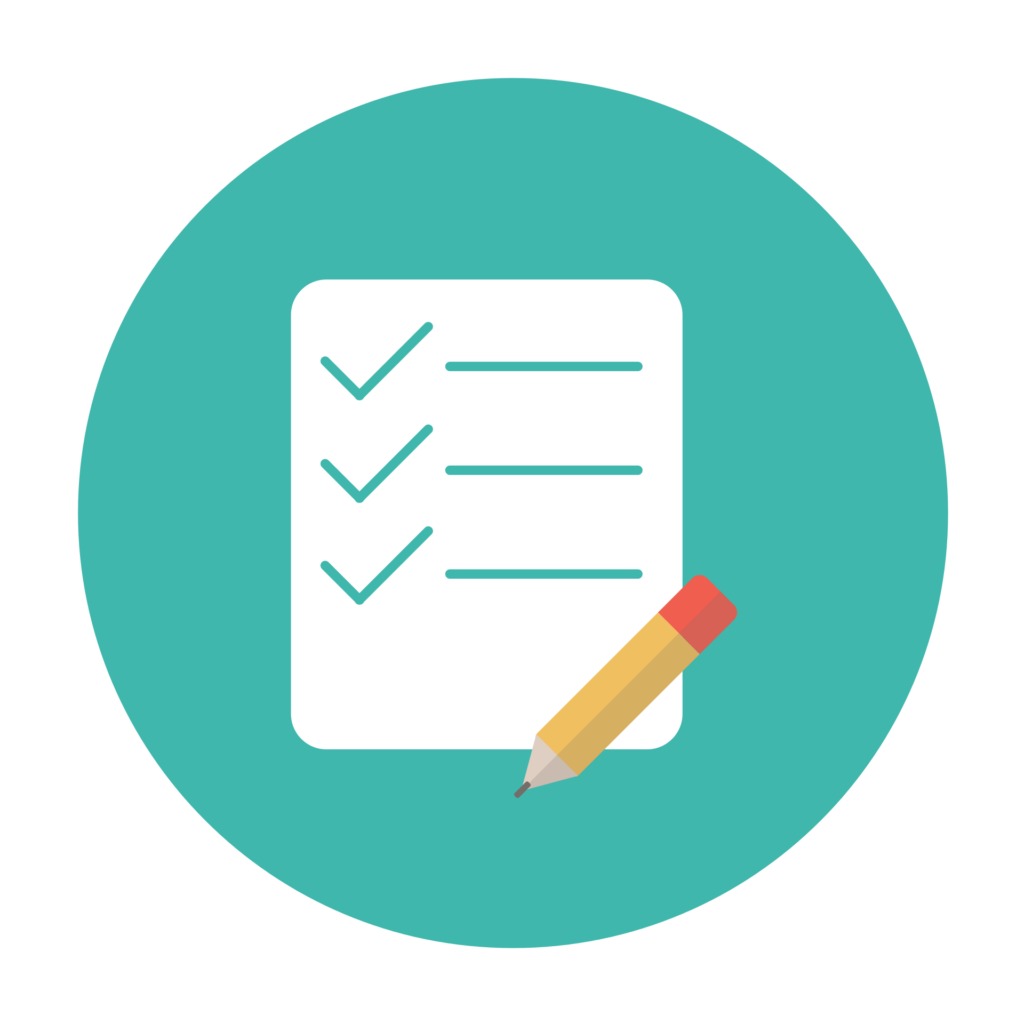Time management is indispensable, at a time when more is being asked of us. Employees who manage their time well get more done in a day. By planning well and dividing their time between important tasks, work pressure is prevented.
Strangely enough, high work pressure and fatigue among employees are not caused by what has already been done. It is precisely the thoughts of what still needs to happen that cause this feeling. Organizing time properly helps to oversee the work. What a sense of control. And as long as everything is under control, everything will be fine. Therefore, teach your employees how to use their time efficiently. For more productivity and less stress.
Also look at Learning goals for employees to reduce absenteeism
Time management reduces the workload
The department is busy. There is a lot of work to do and not enough colleagues. Perhaps there are sick people or even colleagues at home with a burnout. The colleagues who are present receive much more work at their desks. The overview gradually disappears and the work accumulates. The workload increases, because the work can no longer be kept up. This is not due to the tasks themselves, they can handle them well. But she cannot solve the problem of too much work.
The personal work style plays a major role in this. People who can look critically at the work and can choose the most important tasks from it experience less work pressure. Colleagues who let everything come their way and only see a growing pile of work quickly fail. Not all tasks that come to your desk are equally important. As soon as an employee sees this, he can start dividing the work. Important tasks first, issues that can wait later. This way the to-do list becomes a lot shorter and easier to oversee for that moment.
And then we have to watch out for the time robbers, who unnoticed determine a large part of the day. By tackling these time robbers we suddenly have time left over. It is therefore important to teach employees how to use their time properly. Feel free to give them the following tips and insights to learn how to use their time better.
Read also Burnout, is it a fashion phenomenon?

Time robbers you have to manage
Everyone has their own way of working. And as long as that goes well, that’s fine. But as soon as we start to experience a lack of time, something has to change. We are often the cause of this lack of time ourselves. We subconsciously surrender to large time robbers who will determine our day at a given moment.
For example, how often do you check your e-mail? Do you watch every time a report arrives? This takes a lot of time. Just like endless meetings without a clear agenda or predetermined end time. A messy workplace can also cost you an unnecessary amount of time, where would you have left that form …
Lack of planning makes for a chaotic working day. Just pick up some tasks and find out at the end of the day that the most important work has not yet been done. That causes stress. Probably overtime is worked, while that would not have been necessary.
Consequences of poor time management
Time is our greatest friend, and sometimes our greatest enemy. If working time is poorly classified, the work pressure will increase noticeably. There is too much to do and not enough time to get everything done. Employees get the feeling that they are unable to perform important tasks. This lack of control causes stress. Feeling that you have not arrived at work every day feels unsatisfactory. Work is frayed, hoping to get everything done. Colleagues get irritated and blame others. Conflicts arise more easily with a tense working atmosphere.
If this stress persists for a long time due to a high workload, employees will start reporting sick. They feel less useful in their work because they cannot finish it. Involvement is declining. The workload and negative feelings can ultimately lead to burnout. Excessive perfectionism, in particular, creates a lot of work pressure. Employees who want to have everything arranged down to the last detail are always short of time. Just tackling and handling ad hoc activities ensures that the most important things are left behind.
With good time management, you ensure that you are in charge of time, not the other way around.

Time management is a learning goal. There are more learning goals that help an employee become healthier. You can find this here:
Learning objectives for employees to reduce absenteeism
How does time management work?
With time management you take charge of your own work. To steer things in the right direction and go home with a good feeling at the end of the day, plan the work. You can do this in the morning before you start. But this is also possible at the end of the working day so that you can get started immediately the next morning.
Set priorities. Which tasks are the most important and require immediate attention. Which tasks are less important but you also have to take on. Make agreements with yourself, how long you can spend on this, and stick to it. Make sure you finish something every day. Nothing feels so good when things cross off your to-do list.
Time for yourself works more effectively
Are there tasks that require your undivided attention? Schedule time in which you can work undisturbed. Perhaps there is a flexible workspace at the office where you can withdraw. Without a phone and colleagues who disturb you, you will have the task done faster and there is less chance of errors. Even a simple question like “Coffee?” breaks your concentration. Every diversion costs you time. You are taken out of your concentration and you have to regain it. This can cost you half an hour extra in an hour’s work. The sin of course.
So find a place where you can work undisturbed, switch off your cell phone and ask a colleague to pick up your desk phone while you are away. Of course, you can also do this the other way around.
Read also: Employees at the right place with internal mobility
Time is not infinite
There are a limited number of hours in a working day. How well you can plan the work, this will no longer be the case. Learning to say no in an assertive way is part of time management. You simply cannot pick everything up. Do colleagues shift work towards you rather easily? Learn to say no. Or be very clear that you don’t have time for it now, but you can pick it up later.
That way it’s clear to everyone what they can expect from you. And you get no crooked faces why work is not being done.

Tidying up gives you more time
No time to tidy up? A desk full of piles of paper takes your time. You always lose everything. It is unclear and you are distracted by it. Because you always see what is still waiting for you. That doesn’t work relaxed.
Make sure you have a tidy desk that only contains what you are working on at that time.
Just doing nothing takes no time
It may sound silly but doing nothing for 5 minutes will save you time. After staring at a screen for hours, you are no longer as clear and productive as at the start of the working day.
A moment of relaxation, really doing nothing makes your head clear again. New ideas are taking place and the task that you just got stuck on now rolls out of your hands without any problems.
Start with the most difficult task
Procrastination is also a cause of lack of time. Troubling or tedious tasks before you postpone do not work. They just keep lying down and you keep hitting it.
Therefore tackle the most difficult tasks first. By starting this at the moment that you are clear and productive, for example, the first in the morning, you have done the task faster. And it gives you a better feeling the rest of the day. You have already done that!

Make your schedule visual
Use a diary, planning board or something else visual to make your planning. Planning in your head is fun but also quickly reversed. And your head is full of things you don’t want to think about during your work.
Clearly plan your schedule and stick to it. Use your head to think.
Use your time as efficiently as possible
Organizing your day efficiently is getting used to. But once you have experienced the benefits, you do not want anything else. You suddenly notice that a lot more work comes from your hands. That is motivating. View the work in front of you every day. Not everything requires your immediate attention. It is tempting to do short, easy jobs first. It looks like you’ve done a lot. In between, you check your e-mail a few times. And so the day flies by.
It is already halfway through the afternoon when you arrive at an important job, which actually or must be today. You now notice that this job requires quite a lot of time and attention. Will you still get that today?
Situations of this kind and the associated stress are easy to prevent. View all activities in advance. Take out what is really urgent and must be finished today. Get this ready to start. Then view what is also urgent but does not require immediate attention. See if it is possible to delegate this or decide to spend a short time on it. Then come the non-urgent tasks. You plan this and grab it when you have the time. Finally, there are always tasks that are not important and not urgent. Often these things resolve themselves. Set them aside and see in a week if you still have to do something with it, or if it can go away.
Now that you know what your priority is, you start this task. As soon as it is finished, take the less urgent task and spend the time you had devised for this. Keep a close eye on those limits and make sure that you do not stay busy too long. Use the time remaining for non-urgent matters. Fill the holes with this.
Take care of time robbers
You now have your tasks neatly planned and ready at your desk. That is going well. But there are always extra tasks that you can’t predict. Really time-consuming, if you deal with it incorrectly.
For example, your e-mail and telephone are two of them. These come in all day long, irregular and at times that you are not waiting for. But you can also deal with this differently here.
Also read: From goal-oriented to process-oriented
Look less at your e-mail
Emails really do not need to be answered immediately. By responding directly to every message throughout the day, others also expect you to always do so. But this is not necessary, and it is also terribly time-consuming.
View your e-mail a few times a day, at set times. Also, make a decision about this immediately.
- Reply to the message and/or put it on your to-do list
- Delegate the message if it does not belong to your work
- Delete the message if you do not need to do anything within
- Create a box where you put other e-mails, with which you may want to do something with.
This way you keep the inbox clean and well-arranged.
Do not send an email for everything yourself. You can discuss complicated messages in particular in person. Walk to the colleague or call the customer you want to consult with.
That saves a lot of up and down mailing and you can do something with the information immediately. Send a summary of the conversation by e-mail if necessary, so that you can both find back what has been discussed.
Keep in mind that anyone who e-mails a lot can also expect a lot of e-mails back. So beware of adding a lot of people in the CC. If everyone has an opinion about your message, you might get 10 responses to one message, which you all want to answer.
Also read: The Consequences of Stress for Companies
Turn off distracting sounds
Distraction is your greatest enemy if you are focused. Even though you think you can ignore them, your brain unknowingly responds to every pop-up and every ping that comes in. Your productivity flies backwards.
Therefore, switch off all sounds, including from your mobile, and possibly close your mailbox. You have set times when you want to read the e-mail, so in between, you don’t have to know if something comes in.
You can also check your social media when you have finished working, that does not always have to happen in between. Just checking your messages will get you out of your workflow. And social media is built to entertain you as long as possible. Before you know it you will scroll much longer than you thought. Simply a waste of your time.
Also read: Companies, common problems
Short meetings are much more efficient
Is there a long and long meeting? Not every meeting is necessary for all employees. Are endless topics discussed, which means that a meeting takes hours? Divide this up and organize meetings per topic.
Firstly, it is clearer for employees at which meeting their presence is needed. The rest can continue to work, which is much more productive. Secondly, meetings can be much more efficient if the subject is clear.
Also, make sure that it is clear in advance how long the meeting will last. In a limited time, you get to the core faster, without elaborating on peripheral issues that really don’t matter.
Also read Employee with Stress. How to Solve as a Manager?
Waiting times are not lost time
Waiting time often feels like lost time. But you don’t have to. There is always a pile of ‘readable’ material. Take some of this with you. Ideal for public transport, if you have to wait for an appointment or meeting.
In this way, you fill in the ‘lost time’ in a useful way and you finally read that professional literature or that business report that has been waiting for you for a while.
Also read: Stress prevention
Limit your time with long-winded colleagues
Very nice of those colleagues with long stories. But not if you have just started an important task. You don’t want to be rude and wait for the end of their story, but it will take a while.
You better tell quietly that you enjoyed catching up again, but now you really have to get back to work.
Do you have a door? Close it, that often helps against colleagues who abuse your open door policy. No door? Then put on headphones. Now you can at least pretend that you do not hear the talkative colleague and continue working.
Focus on one thing at a time
Multitasking feels like you’re doing a lot, but you actually do a lot of things a bit. Important and complex issues require your full attention to complete it well. In addition, continuous switching between different activities is not good for your productivity. You lose time and energy with it.
It is much more efficient to focus your full attention on what you are doing. You work faster and better on this task. You do not lose time switching and concentrating again.
Read also: Personal effectiveness of employees is an important part of time management
Time management for healthy employees
Time management ensures healthy and happy employees. Because being productive for a day gives a good feeling. By effectively allocating time, more work is done without employees feeling more work pressure.
Precisely because of clearly defined tasks and times, more peace will come. Too much stress is reduced as a result. Everyone knows what is expected of him or her and when this should be done.
Prevent employees from experiencing too much stress and head for burnout. Make their workplace fun again!
Also read: Sustainable employment
Who Are We?
Milltain supports, with a team of experienced trainers, organizations in the prevention of stress and the (re) finding of work happiness in the workplace. Our training courses are aimed at managers within companies. A burnout quickly costs the organization € 70,000.
In addition to financial suffering, human suffering is great. Not only for the employee but also for close colleagues who have to deal with the blows. Before you know it you are in a negative vicious circle.
Related information
Have you already read these articles:






